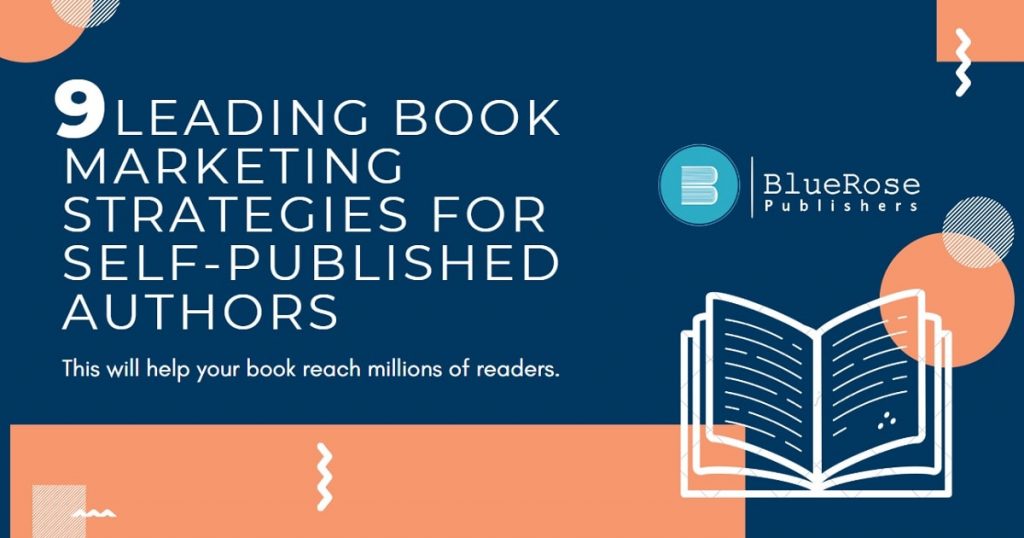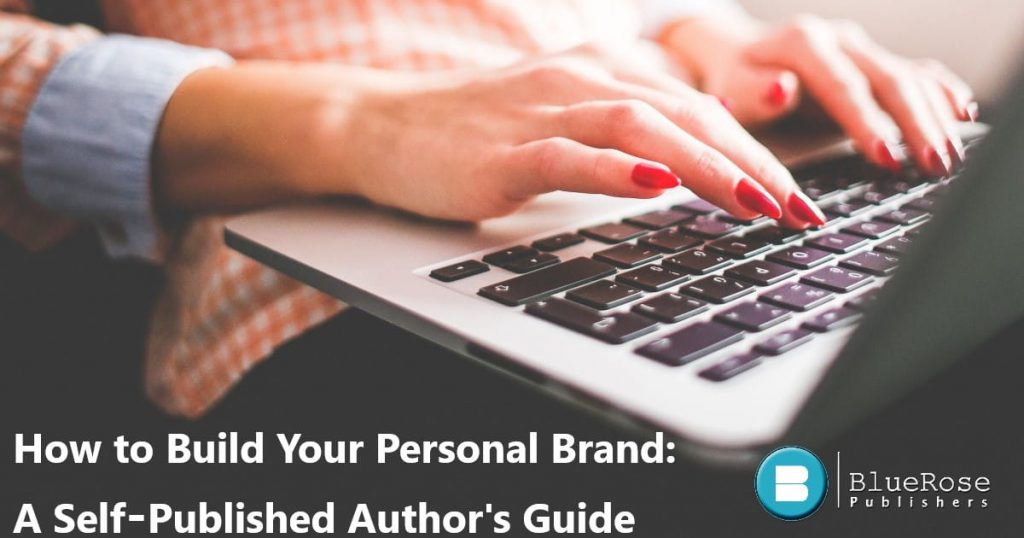
How to finalize your book title in just 2 easy steps!
In the vast and diverse realm of literature, a book’s title serves as more than just a label; it holds immense power as the gateway to the story within its pages. Like a key, the title unlocks the reader’s curiosity and sets the tone for the journey that awaits them. Crafting the ideal book title is an art that can profoundly impact a reader’s decision to pick up a book and embark on an unforgettable adventure through the author’s world of imagination. Imagine walking into a vast library or scrolling through an online bookstore, surrounded by countless books, each vying for attention. Among this sea of literary offerings, a well-chosen title stands out like a shining beacon, beckoning readers to explore its contents. A captivating title is a compelling invitation that can determine whether a reader chooses to engage with a particular book or pass it by. Read: Looking to publish a book in the UK? Here’s a complete guide for publishing in the UK. The importance of a book title lies in its ability to encapsulate the essence of the story and evoke intrigue within a few well-crafted words. It is a snapshot of the narrative’s soul, revealing the book’s themes, emotions, and core message. A thoughtfully chosen title sets the stage, piquing the reader’s curiosity and leaving them eager to uncover the mysteries hidden within the pages. Crafting the perfect book title involves a delicate balance between creativity, clarity, and impact. The process goes beyond mere wordplay; it is an intricate dance of language and emotion, designed to resonate with the target audience and leave a lasting impression. To achieve this, authors embark on a journey of exploration and contemplation, exploring various themes, concepts, and expressions that align with their story’s essence. Here’s a list of steps that you should keep in mind before thinking or finalizing a book title: Step 1: Decoding the Art of Book Titles Understanding the Impact of a Title The title of a book is not just a mere label; it holds the power to shape the reader’s perception and create a lasting impression. An impactful title can evoke curiosity, emotion, and intrigue, while a lacklustre title may fail to capture the reader’s attention. Understanding the importance of a well-chosen title is crucial for authors seeking to make a mark in the competitive literary world. Example: “The Catcher in the Rye” by J.D. Salinger The title of this classic novel immediately sparks curiosity and sets a mysterious tone. It invites readers to ponder the meaning behind the phrase “The Catcher in the Rye,” creating an emotional connection before they even open the book. The title’s ambiguity and allure contribute to its enduring appeal. The Power of Attention-Grabbing Titles: In a world filled with countless books vying for attention, an attention-grabbing title is the first step in capturing potential readers’ interest. A title that is simple, memorable, and relevant to the book’s content can significantly increase its chances of being picked up and explored further. Example: “Gone Girl” by Gillian Flynn The title “Gone Girl” immediately creates intrigue and raises questions in the reader’s mind. Who is the “Gone Girl”? What happened to her? The simplicity and mystery of the title compel readers to find out more about the story behind it. Avoiding Title Repetition: Originality is key to standing out in a sea of books, and avoiding title repetition is essential to ensuring that your book maintains its unique identity. Thorough research should be conducted to avoid using titles that have been used before or are too similar to other works, reducing the risk of confusion and establishing a distinct presence in the literary marketplace. Example: “The Hunger Games” by Suzanne Collins This wildly popular young adult dystopian novel introduced a fresh and captivating title that became synonymous with the series. The term “The Hunger Games” had not been widely used before, making it a unique and easily recognisable title that helped the book gain significant attention and popularity. You may also like: The Rise of Self-Publishing and What it Means for Authors Step 2: The Science of Crafting the Perfect Title Ideal Title Length: The length of a book title is a critical aspect that can significantly impact its reception by both readers and the market. An ideal title should strike a balance between being concise and informative. Generally, titles that range from 7 to 10 words are considered effective. Shorter titles have the advantage of being more impactful, capturing the reader’s attention quickly. They are also easier to remember, making it more likely for readers to recall the book later. A concise title allows for a clear and straightforward representation of the book’s content and theme. Example: “To Kill a Mockingbird” by Harper Lee This classic title is a perfect example of an ideal length. With just four words, “To Kill a Mockingbird” encapsulates the central theme and sets the tone for the entire novel. The title is memorable, creating a lasting impression on readers and drawing them into the story. The Art of Summarization: A successful book title serves as a concise summary of the story, effectively evoking emotions and curiosity in potential readers. Authors must carefully choose words that reflect the central themes and emotions woven into their narrative. A strong title should spark interest and entice readers to explore the book further. Example: “The Da Vinci Code” by Dan Brown In just four words, “The Da Vinci Code” captures the essence of the thrilling mystery that unfolds within the pages of the novel. The title hints at the book’s exploration of art, history, and hidden secrets, leaving readers eager to unravel the enigmatic tale. Timing and Perspective: Selecting a book title can be a dynamic process that evolves at different stages of the writing journey. Authors may have an initial idea before they start writing, but as the story develops, new insights and perspectives may emerge, leading to potential title changes. After completing the novel, authors gain a…

How should you market your first book? (Complete-guide)
An author writes their book hoping that it will reach the widest audience and their work will be appreciated but if the sales don’t achieve their goal then the confidence of the writer plummets. Book promotion is a tricky deal, it requires an apt amount of skills and strategies to hit its predicted mark. How can I promote my book? To achieve this the first step should be to choose your genre and audience wisely. It should be clear which genre your book falls in because the readers are peculiar in picking up their reads. The website accompanies a profile of the author, which gives the readers a peek into the author’s life. Along with this, creating an author website with a store is extremely important from a sales perspective. Not only does this boost the sales but it also becomes convenient for the reader to access their entire book list. A website is beneficial as it becomes a stop shop for all the author’s works and has enough information to interest the reader. It can also link to social media platforms. Through BlueRoseONE you can create your profile on our website which will help you advertise your book and reach a bigger audience. BlueRoseONE also advertises your book on Amazon and GoodReads where ratings carry a huge value to spike up the sales. BlueRoseONE also offers templates that will simplify the tedious process of self-publishing. We also have packages and run ad campaigns on our social media platforms which broadens the authors’ reach. Read: How to publish a children’s book? Complete guide. Before self-publishing your book, get it beta read by experienced beta readers, it can be beneficial in two ways. First, they will provide you with constructive feedback along with an outsider’s perspective which points out flaws that get lost while writing. Secondly, you can ask your beta readers to leave reviews on Amazon and GoodReads. They can also recommend the book to their friends which works as the best method of promotion. How should you promote your book before it’s published? Lastly, launch your book. This event creates the hype your book deserves. Many readers seek out book launches in an attempt to get to know authors and fellow genre readers. This can be the perfect opportunity to market your book before it reaches the bookstores. You can also plan giveaways where you send a few free copies of your book or the first book in the series. You could opt to reveal a few chapters on the website as well. This leaves the reader on a mysterious note and allures them to read the book to kill the suspense. How did JK Rowling market her book? To give an example of one of the most famous writers in the world, J K Rowling stands out because there is not one person who hasn’t heard about the Harry Potter series. Rowling didn’t just write books, she created a brand out of Harry Potter. She pitched her book to the right editor who decided to take a gamble and signed a contract with her. Read: Effective strategy to market your book. Her method of promoting her novels was unique as she created a brand name that became popular and is now recognized in every household. After the massive success of her novels, the later novels were promoted through the traditional word of mouth method and then shifted to pre-orders which created suspense amongst the readers. Promoting your masterpiece can be hard but it can be made easy with the right tools and resources. BlueRoseONE ensures your book receives the right amount of attention and the appropriate crowd which appreciates art.

9 Leading Book Marketing Strategies for Self-Published Authors
Published a Book? Now wondering how to promote your book? How to market self-published book to be a bestseller? Read: 9 Leading Book Marketing Strategies for Self-Published Authors

A comprehensive guide: How to sell and promote self-published books?
Want to promote your self-published book? Wondering How to promote your self-published books? Read comprehensive guide: How to sell and promote self-published books? with Self-Publishing company in India

How To Build Your Personal Brand: A Self-Published Author’s Guide.
Taking the self-publishing route is a very satisfying way of entering the world of authorship. While there’s an element of reassurance to having your work accepted by a major publisher, that process strips you of some control over the final product. If you want to keep that control, steer in your preferred creative direction, and reap all the rewards, the DIY approach is right for you.
